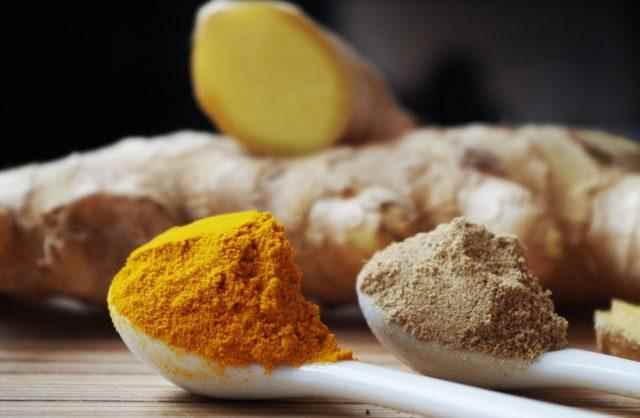Sound is produced by the passage of air between the vocal cords as it exits the lungs. If the voice is low, forked and hoarse, it is hoarseness. In some cases the sound is almost nonexistent. Although it is an insignificant situation, experts emphasize that persistent hoarseness can be a harbinger of important diseases.
What Causes Hoarseness?
Hoarseness can occur for a variety of reasons. Prolonged hoarseness may indicate serious illness. It is important to see a specialist doctor, as there may be a simple and spontaneous cause behind hoarseness, and the persistence of hoarseness will be a sign of other diseases.
1. Infections
Infections that directly affect the upper respiratory tract such as laryngitis, pharyngitis, tonsillitis, flu, colds, and colds can cause hoarseness. While these diseases may start with hoarseness, there may be loss of voice functions during the disease. With the end of the disease, the hoarseness also improves.
2. Coercion
It is mostly seen in people who have to talk constantly, such as teachers, sound artists, theater actors. Apart from these, shouting and talking loudly for a while also cause strain on the vocal cords. For example, it is possible for the cheering person to be muted during a match. It usually goes away on its own if you talk less than usual for a few days.
3. Reflux
Reflux is stomach acid escaping upwards and reaching the throat. Stomach acid also damages the vocal cords, causing hoarseness. Eating before going to bed, excessive consumption of acidic beverages, unhealthy diet are among the main causes of reflux. In the treatment of hoarseness caused by reflux, first of all, the stomach-related problem should be eliminated. The lying position is also adjusted to prevent the stomach acid from rising up.
4. Tumors
Tumors in or around the vocal cords are one of the causes of hoarseness. Hoarseness that lasts longer than two weeks should be examined. Tumors can be benign or malignant. Smokers are at higher risk. Tumors in the vocal cords also show symptoms such as difficulty swallowing and a feeling of being stuck.
5. Polyp
Polyps in the vocal cords occur in people who constantly use their voice or as a result of forcing. Bleeding in the vocal cords swells and turns into a polyp if they are not intervened in time. In advanced cases, surgical intervention is necessary.
6. Nodule
Nodules are another cause of hoarseness. They are calluse-like formations that form on the vocal cords. It occurs in areas with strain on the vocal cords. Resting the vocal cords is the main treatment. At the last stage, there is a surgical treatment option.
7. Paralysis
Like other organs of the body, paralysis can occur in the vocal cords. Vocal cord paralysis can occur as a result of many diseases. The treatment, which starts with speech therapy, can continue with surgical intervention when deemed necessary.
8. Psychological Causes
Intense anxiety, depression can cause hoarseness in the vocal cords. In this type of mental disorders, hoarseness can also be one of the methods used to attract attention. A detailed psychiatric examination is required.
What Is Good For The Vocal Cords?
Vocal cord problems are among the ailments that have a solution. However, neglecting the treatment and delaying the treatment may cause the problem to be permanent or even to lose the voice. There are some foods that can be consumed to strengthen the vocal cords of the person with a hoarse voice. If the disorders in the vocal cords are not caused by a serious illness, simple methods can be effective in eliminating the problem. What is good for hoarseness?
1. Turmeric
Turmeric has an important place in the elimination of infections in the upper respiratory tract. The plant, which has an antibacterial effect, also relaxes the vocal cords, which are tired because it is used too much.
Turmeric can be mixed with milk or water to drink. If it is drunk with warm milk or warm water, it supports the elimination of bacterial problems in the throat. It is undesirable to drink hot in case of infection.

2. Chamomile Tea
Chamomile tea has a relaxing and calming effect. It can be easily used in hoarseness and in diseases such as colds that cause this condition.
There are dozens of types of chamomile in nature, and very few of them can be used for therapeutic purposes. For this reason, it is important to choose a reliable brand when buying chamomile tea. After brewing a few pieces of chamomile to be thrown into a glass of warm water, it is filtered and drunk.
3. Black Cumin
Black cumin, which is among the herbs that are good for vocal cord nodules, is a spice used to flavor dishes. The substance called thymoquinone in its content shows anti-damage properties. It also has an anti-inflammatory effect.
The direct use of black cumin in its unground form is common. However, unground black cumin is difficult to break down in the stomach. For this reason, it is recommended to consume black cumin as a paste-like mixture to be obtained by mixing it with olive oil and honey after it is made into powder. In this way, it can be consumed as a teaspoon every morning. Another form of consumption is oil. The oil obtained from both black cumin and black cumin is effective on the vocal cords. Black seed oil can be consumed up to one teaspoon per day.
4. Honey
Honey, one of nature’s greatest miracles, is one of the answers to the question of what to do to open the vocal cords. Honey contains many substances that benefit the human body. At the same time, honey has a soothing effect on the throat.
Since honey is such an important food item, its imitations have become one of the foods that are sold a lot. In order to see the effect of the honey to be used, it is necessary to pay attention to its naturalness. Honey can be mixed into herbal teas or consumed directly.
5. Licorice Root
Those who are looking for herbal methods for the question of what is good for a forked voice can benefit from licorice root. Licorice root has a healing effect on throat infections. It also has a soothing effect on irritations caused by compulsion. It is one of the herbs that strengthen the stomach. It is effective in eliminating sound problems caused by reflux.
Licorice root is sold dried in herbalists. A pinch of dry roots is boiled with hot water. It is then filtered and made ready for drinking. If desired, it can be mixed with honey to strengthen its effect. You can also gargle with licorice root.
6. Sage
Sage, which removes germs and fights bacteria, also helps in how to get rid of hoarseness. Sage can be used to eliminate infections especially in the throat area.
Sage can be drunk as a tea. Another use is for gargling. While preparing sage, care should be taken not to boil it. It is enough just to throw a few sprigs of sage in a glass of hot water. In five minutes, the tea will be ready. Sage prepared for drinking can be consumed with honey. It is inconvenient to use sage in pregnant and lactating women.
7. Ginger
Ginger, which is strong in terms of vitamins and minerals, has a wide range of effects from colds to stomach problems. Ginger can also be used for problems in the vocal cords. Ginger, which helps relieve inflammation in the throat area, also softens the vocal cords.
Ginger is sold both dry and fresh. Fresh ginger can be grated and mixed with fruits such as apples and consumed. Tea made from dried ginger root is also effective. This tea can be drunk or used as a mouthwash. Ginger needs to be boiled for a while to give the active ingredients to the water. Ginger can also be added to other herbal teas.
8. Apple Cider Vinegar
Apple cider vinegar is an effective natural source of fighting germs. It is especially used to soothe throat infections. The more natural the apple cider vinegar, the more effective it will be.
Apple cider vinegar is milder than other vinegars. Apple cider vinegar, which is easier to drink, can be used directly. Since vinegar is an acidic substance, it can be gargled if drinking vinegar causes stomach distress. For this, apple cider vinegar and water are mixed in a one-to-one measure. Gargle with this mixture regularly every day.
How are the vocal cords protected?
Voice is one of the foundations of communication. Some people do business using their voice. Therefore, it is important to protect the vocal cords. A few movements and situations that we ignore in our daily life damage the vocal cords. What are the things that damage the vocal cords?
1. Smoking
The harmful substances in cigarettes can adhere to the vocal cords and cause cancer and life-threatening diseases. Smoking, which causes thickening and deterioration of the vocal cords, is also among the main causes of laryngeal cancer. Passive smokers are likely to experience the same problem.
2. Alcoholic and Acidic Drinks
Drinks that damage the vocal cords include acidic and alcoholic beverages. Alcohol causes deformation in cells. Acidic drinks, on the other hand, cause irritation where they pass.
3. Talking Loud
Constantly talking loudly and shouting causes cracking and bleeding in the vocal cords. Therefore, it is important to use the voice in one tone. Especially in noisy areas, it is necessary to avoid being in such places all the time, as there is a need to speak louder to be heard.
4. Stress
Stress has a negative effect on the vocal cords as in many diseases. Stress, which causes tension in the muscles, causes strain on the vocal cords. For treatment in stress-related situations, first of all, it is necessary to learn to act calmly. Sports that will help cope with stress and herbal teas with calming effects can be used to relax.
5. Clean Air
Oxygen is also important for the vocal cords. It is important to breathe while speaking and to ensure that the environment is properly ventilated in order to protect the vocal cords.
Ambient humidity is also important for the protection of the vocal cords. If the air is too dry, a steam machine can be used or a container of water can be placed on the heaters to humidify the air.
6. Water
The vocal cords love moisture. When they are left without moisture, sound problems begin to appear. Drinking at least eight glasses of water a day is important for keeping the throat moist. The thing to be careful about here is that the choice for liquid consumption is water. Drinks such as tea, coffee, fruit juice do not have the same effect as water.
7. Throat Clearing Movement
The continuous throat clearing movement causes damage to the vocal cords. Continually clearing the throat causes irritation of the area. Cough is also one of the factors that irritate the throat. In both cases, it is important to produce therapeutic solutions in terms of protecting the vocal cords.
